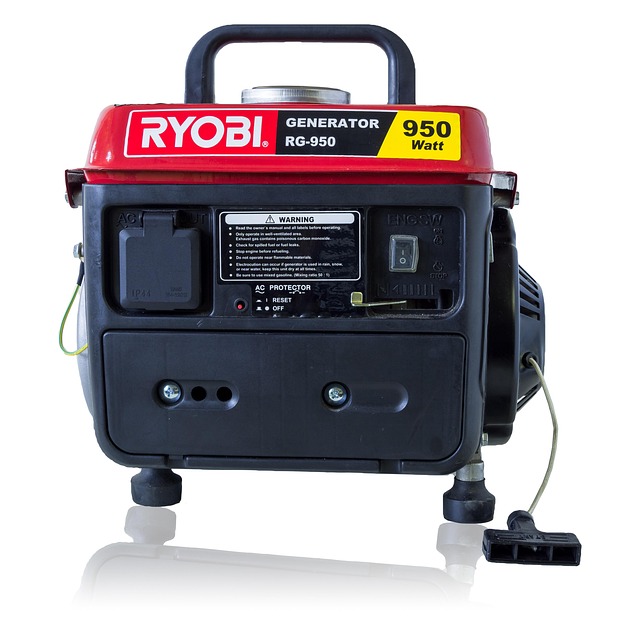Emergency Generators: Powering Your Peace of Mind During Outages
In an increasingly electrified world, power outages can disrupt our daily lives and even pose safety risks. Emergency generators have become essential tools for homeowners and businesses alike, providing a reliable backup power source when the grid fails. This article explores the benefits, costs, and top brands of emergency generators, helping you make an informed decision to keep your lights on and appliances running during unexpected blackouts.

What are the key benefits of owning an emergency generator?
Emergency generators offer numerous advantages that extend beyond mere convenience. First and foremost, they provide a crucial safety net during power outages, ensuring that essential medical equipment, heating and cooling systems, and security devices remain operational. This can be particularly vital for vulnerable individuals who rely on powered medical devices or those living in areas prone to extreme weather conditions.
Additionally, emergency generators help prevent food spoilage by keeping refrigerators and freezers running. For businesses, they can mitigate significant financial losses by maintaining operations during outages. Homeowners also benefit from the peace of mind knowing that their sump pumps will continue to function, protecting basements from flooding during storms.
How do emergency generators work, and what types are available?
Emergency generators typically operate on fuel sources such as natural gas, propane, or diesel. When a power outage occurs, the generator automatically detects the loss of electricity and starts up within seconds, restoring power to pre-selected circuits in your home or business.
There are two main types of emergency generators:
-
Portable generators: These are smaller, movable units that can be manually started and connected to specific appliances or circuits. They’re ideal for occasional use or powering essential items during short outages.
-
Standby generators: Also known as whole-house generators, these are permanently installed outside your home and connected to your electrical system. They offer higher power output and can automatically switch on during an outage, providing seamless power to your entire home or business.
What factors should you consider when choosing an emergency generator?
Selecting the right emergency generator depends on several factors:
-
Power requirements: Calculate the total wattage of the appliances and systems you need to run simultaneously during an outage.
-
Fuel type: Consider the availability and cost of different fuel sources in your area.
-
Installation location: Ensure you have adequate space for the generator and that it meets local zoning and noise regulations.
-
Automatic transfer switch: For standby generators, this essential component allows for seamless power transition during outages.
-
Maintenance requirements: Regular maintenance is crucial for reliable operation, so factor in the cost and complexity of upkeep.
-
Budget: Balance your immediate budget with long-term energy needs and potential cost savings during outages.
What are the top emergency generator brands available in Canada?
Several reputable brands offer high-quality emergency generators in the Canadian market. Some of the leading manufacturers include:
-
Generac: Known for their wide range of residential and commercial standby generators.
-
Kohler: Offers both portable and standby generators with a reputation for reliability.
-
Briggs & Stratton: Provides a variety of portable and standby options suitable for different power needs.
-
Honda: Renowned for their quiet and fuel-efficient portable generators.
-
Champion: Offers affordable portable and standby generators with good performance.
When choosing a brand, consider factors such as local dealer support, warranty coverage, and customer reviews to ensure you’re investing in a reliable product.
How much do emergency generators typically cost in Canada?
The cost of emergency generators can vary significantly based on type, power output, and features. Here’s a general pricing guide for emergency generators in Canada:
| Generator Type | Power Output | Estimated Cost Range |
|---|---|---|
| Portable | 3,000-8,000W | $400 - $1,500 |
| Standby | 7,000-20,000W | $4,000 - $15,000 |
| Whole-House | 20,000W+ | $10,000 - $20,000+ |
Prices, rates, or cost estimates mentioned in this article are based on the latest available information but may change over time. Independent research is advised before making financial decisions.
It’s important to note that these prices typically don’t include installation costs for standby generators, which can add $2,000 to $5,000 or more to the total investment. Additionally, ongoing maintenance and fuel costs should be factored into your budget.
What maintenance is required to keep an emergency generator in top condition?
Proper maintenance is crucial for ensuring your emergency generator performs reliably when you need it most. Here are some key maintenance tasks:
-
Regular oil changes: Typically required every 50-200 hours of use or annually, whichever comes first.
-
Air filter replacement: Check and replace as needed, usually every 200-400 hours of operation.
-
Spark plug inspection and replacement: Generally every 200-400 hours of use.
-
Fuel system maintenance: Keep fuel fresh and stabilized, especially for generators that aren’t used frequently.
-
Battery care: For electric-start models, ensure the battery is charged and in good condition.
-
Load testing: Run the generator periodically under load to ensure it’s functioning properly.
-
Professional servicing: Schedule annual inspections by a qualified technician for more complex maintenance tasks.
By following these maintenance guidelines and the manufacturer’s recommendations, you can significantly extend the life of your emergency generator and ensure it’s ready to power your home or business when the lights go out.




